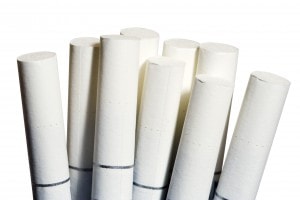February 5, 2018

Last week, a number of vape shops represented by the Pacific Legal Foundation (“PLF”) filed federal lawsuits around the country challenging e-cigarette marketing restrictions contained in the Food and Drug Administration’s (“FDA”) 2016 “Deeming Rule.”
How can e-cigarette manufacturers, vape shops and related marketing affiliates avoid problems with regulators?
FDA E-Cigarette Rules
In 2010, the FDA issued regulations that, among other things, prohibited the marketing of so-called “modified risk tobacco products” without prior FDA approval.
As we have previously reported, the FDA issued a separate rulemaking in May 2016 that expanded the definition of “tobacco products” – and the modified risk tobacco product pre-approval process – to include e-cigarettes and related components, such as e-liquids and atomizers.
PLF Goes on Offensive Against FDA E-Cigarette Marketing Regulations
On January 30, 2018, PLF’s vape shop clients filed three separate federal lawsuits against the FDA in Texas, Minnesota and the District of Columbia, respectively:
- Rave Salon Inc. v. FDA, No. 18-cv-237 (N.D. Tex.);
- Hoban v. FDA, No. 18-cv-269 (D. Minn.); and
- Moose Jooce v. FDA, No. 18-cv-203 (D.D.C).
The defendants in all three cases claim that the Deeming Rule violates their free speech protections under the First Amendment by requiring them to seek FDA pre-approval before making e-cigarette marketing health benefit-related claims. Specifically, while many of the defendants and their principals personally used vaping as a means to quit smoking, the complaints note that:
“FDA approval must be obtained before the product can be put into commerce with any labeling or marketing that ‘represents explicitly or implicitly that’ the product ‘presents a lower risk of tobacco-related disease or is less harmful than one or more other commercially marketed tobacco products,’ that the product ‘or its smoke contains a reduced level of a substance or presents a reduced exposure to a substance,’ or that the product ‘or its smoke does not contain or is free of a substance.’”
The PLF defendants argue that their ability to communicate truthful information to their customers in e-cigarette marketing materials has been heavily restricted by the FDA’s Deeming Rule.
In a separate twist, all three complaints also allege that the Deeming Rule violates the Appointments Clause of the U.S. Constitution because the final Rule itself was signed by Leslie Kux (the FDA’s Associate Commissioner for Policy), rather than by an officer of the United States who was nominated by the President and confirmed by the Senate.
Are Your E-Cigarette Marketing Materials Legally Compliant?
Although PLF has taken a bold legal stance against the FDA in attempts to stop the Deeming Rule’s enforcement, lawmakers and regulators across the country are cracking down on e-cigarette marketing, and other applicable federal, state and local laws restrict how e-cigarettes may be promoted. As such, businesses and individuals operating in the e-cigarette space should be sure to speak with an experienced marketing attorney before commencing any e-cigarette marketing campaign.
If you are interested in learning more about this topic, need to review your e-cigarette marketing practices, or are being investigated by a regulatory agency, please e-mail us at info@kleinmoynihan.com or call us at (212) 246-0900.
The material contained herein is provided for informational purposes only and is not legal advice, nor is it a substitute for obtaining legal advice from an attorney. Each situation is unique, and you should not act or rely on any information contained herein without seeking the advice of an experienced attorney.
Attorney Advertising
Related Blog Posts:
FDA Issues New Guidance on E-Cigarette Free Samples
Vermont Vapor Up in Smoke for Allegedly Deceptive E-Cig Marketing Practices



